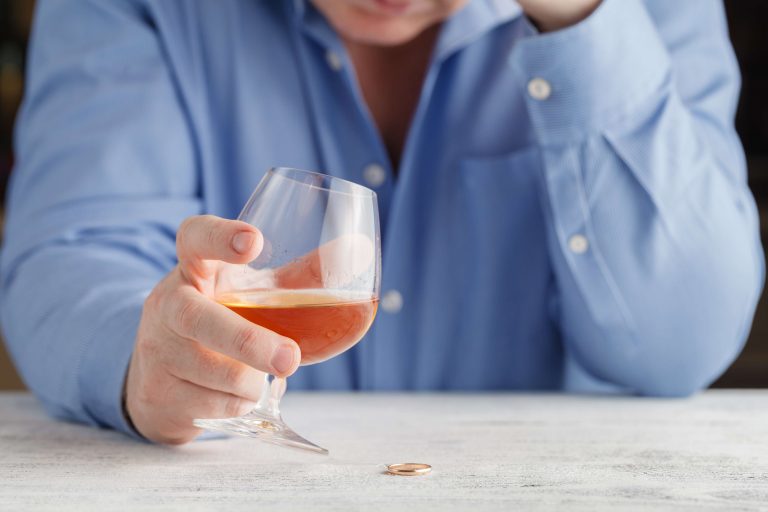Few experiences are as essential to an addict as the moment when he or she shifts from denial to a willingness to make a change. During the 12- to 24-hour time frame after the last drink, most people will begin to have noticeable symptoms. http://tekst-pesni.ru/index.php?name=engsongtext&op=view&id=419475 These may still be mild, or the existing symptoms might increase in severity. This process temporarily restores homeostasis, or chemical balance, in an effort to counteract the impact of long-term alcohol use on the brain.
- These benefits not only ease the discomfort of the detox process, but also help to prevent relapse during this stage of treatment.
- If you’re not ready or willing to change those behaviors and thoughts, then treatment cannot do what it’s designed to do.
- Studies show that families that participate in treatment programs increase the likelihood of a loved one staying in treatment and maintaining gains.
- After completing a program at a treatment center, recovering alcoholics move into the maintenance stage, which generally lasts from six months to several years or longer.
Acute and Post-Acute Alcohol Withdrawal Symptoms

At work and home, avoid tackling too many projects, because attempting too much too soon can lead to relapse. Although the addict has come to realization and acknowledgement of the situation, it does not mean they have stopped using, however the first stage is critical in progression with the additional stages. But, just because a person realizes they have a problem doesn’t mean that they want to change it.
How Long Does it Take to Feel the Effects of Not Drinking?
- Over time, alcohol addiction causes a shift in the brain’s motivation to drink.
- An increasing number of high schools and colleges offer addiction recovery resources (CRPS, or Collegiate Recovery Programs) for students, including mentors, workshops, dedicated lounges, and group meetings and activities.
- In addition, having a support network once treatment is over can ease the transition from rehab back to daily living.
The brain mediates our motivation to repeat behaviors that lead to pleasurable, rewarding states or reduce uncomfortable, distressing physical or emotional states. In this context, drinking alcohol can be motivated by its ability to provide both relief from aversive states and reward. These dual, powerful reinforcing effects help explain why some people drink and why some people use alcohol to excess. With http://www.konura.info/forum/index.php?topic=739.msg76978 repeated heavy drinking, however, tolerance develops and the ability of alcohol to produce pleasure and relieve discomfort decreases. If you’re feeling discouraged in the first 30 days because you haven’t yet experienced the benefits of life without or with less alcohol, we understand. It can be frustrating, but it’s an incredibly common and necessary chapter in this journey towards alcohol recovery.
Symptoms of Alcohol Detox
These stages may be used as a guideline of what most people need to go through in order to find that emotional sobriety, that most of us are truly looking for. Behavioral health treatment for alcohol problems is often (but not always) covered by insurance. In the United States, most states have low-cost or free rehabilitation programs for those who are uninsured.
- It is hard to see the benefits of not drinking in this case, and the person may struggle with relapse unless they become able to bring about some real change.
- The recovery process from Substance Use Disorders (SUDs) has evolved over time.
- Day six of no alcohol consumption usually brings some relief for the most severe withdrawal symptoms, but some nagging symptoms can persist.
- He is a licensed residential home inspector in the state of Florida and relates his unique experience of analyzing a property and/or housing condition to determining any necessary course of action at our facility.
- An exciting part of this period is that it can lead you to a happier life full of welcomed change and constant improvement.
For many, the action stage is both physically and mentally taxing — and individuals at this stage face a risk of alcohol relapse. The action stage typically lasts from three to six months and sometimes as long as 18 months, but it does not mark the end of the recovery process. The average liver in a healthy adult metabolizes one drink in approximately two hours. If you have AUD or think you are addicted to alcohol, talk to a healthcare provider. Medical support can help you safely navigate withdrawal and begin your journey to recovery and long-term sobriety.
The addict or alcoholic will come to the realization that staying sober has become a way of life and relapse can still occur if they are not careful. Staying committed to finding an enjoyable way of life from drugs and alcohol is essential. One of the key factors in this stage is learning how to prevent relapse. The individual must maintain a humble attitude towards the power of addiction http://patesal.ru/page/115/ and not take their abstinence for granted. Personal vigilance is paramount and vitally important is the continued participation in self-help groups, or therapy. They are currently navigating the journey of abandoning people, activities, and behavior that have been significant parts of their using careers, however they have yet to fully establish the foundation of their newly sober lives.


